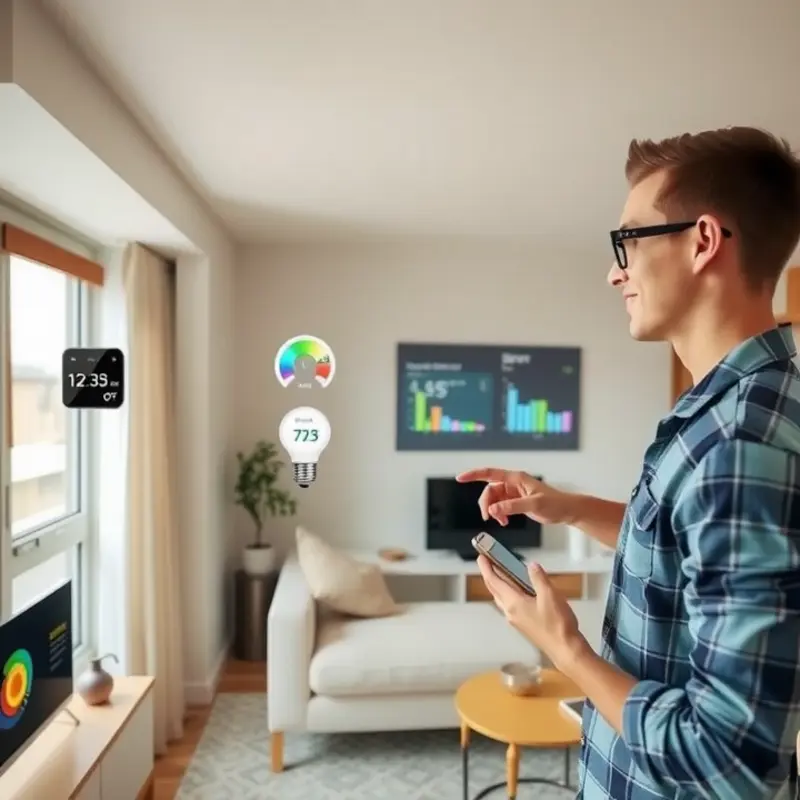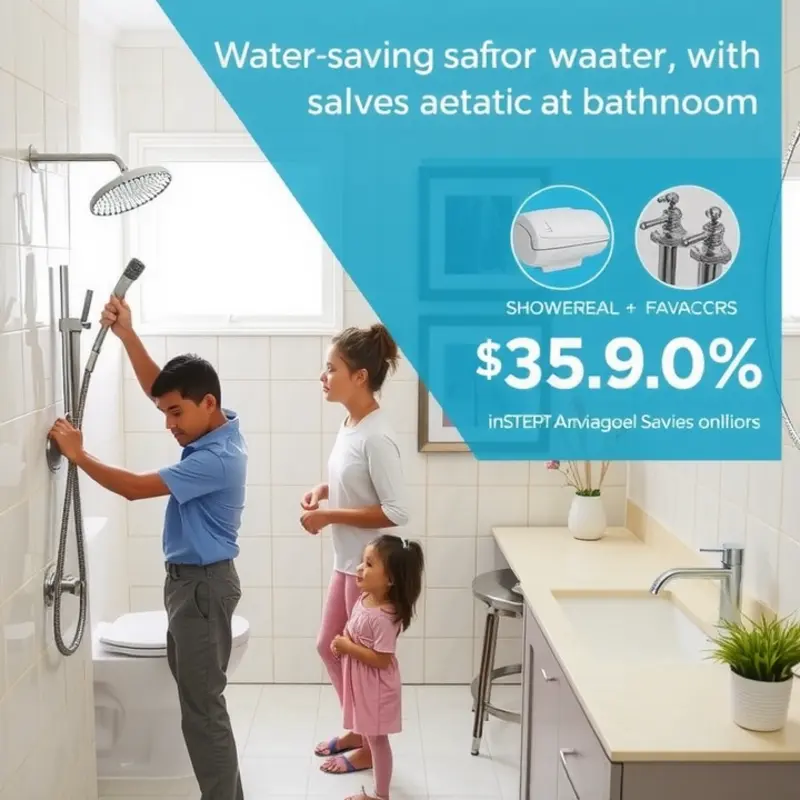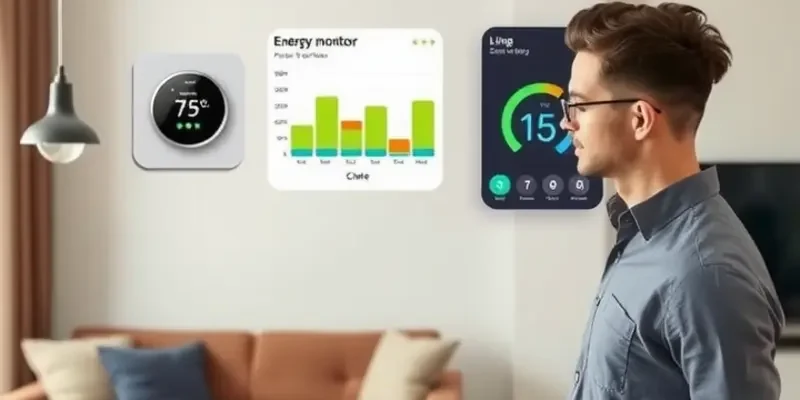Utility bills can be a significant burden for young professionals, students, couples, and families navigating the challenges of renting in the U.S. With increased living costs, many are seeking ways to save money while enjoying their rental experience. Understanding your utility expenses is crucial for financial clarity. In this resourceful guide, we’ll explore simple yet effective strategies to minimize those monthly bills without compromising comfort. Whether you’re a first-time renter or relocating, implementing these techniques can empower you to take control of your finances. Let’s delve into practical solutions that address common utility expenditures—including electricity, water, and heating. A few small adjustments can lead to substantial savings, making your living situation not only more affordable but also more sustainable.
Effective Strategies to Lower Electricity Costs

Saving on electricity doesn’t require sacrificing comfort. Renters can take several practical steps to reduce their electricity bills without drastic lifestyle changes.
One straightforward method is to incorporate behavioral changes. Make it a habit to turn off lights when leaving a room. Encourage family members or roommates to do the same. Additionally, be mindful of unplugging devices that aren’t in use. Electronics like phone chargers, microwaves, and televisions draw power even when turned off, contributing to phantom energy usage.
Understanding peak hours can also lead to significant savings. Many utility companies charge higher rates during these times. Running energy-intensive appliances like washers or dryers during off-peak hours can help lower your bill. Check with your local utility provider to understand your peak hours better.
Exploring ways to improve air quality might intersect with managing electricity usage. For more insights on this, explore our apartment air quality improvement tips.
The use of smart home technology can streamline electricity usage. Consider using smart plugs and thermostats. These allow you to control appliances remotely and even set schedules for turning them on or off, ensuring they run only when needed.
Next, focus on the benefits of energy-efficient appliances. Appliances with a high energy efficiency rating often pay for themselves over time through reduced electrical consumption. If replacing appliances isn’t feasible, renters can still maximize efficiency by cleaning and maintaining current ones. For instance, regularly defrosting a freezer and cleaning dryer vents ensures these appliances run more efficiently.
Don’t overlook the impact of lighting choices. Replacing incandescent bulbs with LED equivalents can result in substantial savings. LEDs consume far less electricity and have a much longer lifespan, reducing both energy and replacement costs.
Investing in insulation improvements might seem daunting, but small changes can lead to savings. Use draft stoppers for windows and doors to maintain the desired temperature with minimal heating or cooling adjustments. Thicker curtains can also serve as insulators, keeping rooms warm in winter and cool in summer.
Finally, educate yourself regularly about new energy-saving practices. Technological advancements provide fresh opportunities to reduce costs, and staying informed can help adapt your strategies effectively.
Implementing these strategies not only reduces electricity costs but also aids in fostering a sustainable lifestyle. By adopting a mix of technology, behavioral changes, and efficient practices, renters can enjoy both lower bills and a positive impact on the environment.
Water Savings: Smart Practices for Renters

Reducing water usage is not just about saving money, it’s also about conserving a valuable resource. Renters, often bound by their lease agreements, might think they’re limited in what they can do to cut water costs. However, several practical tactics can significantly lower your water bill while fitting within rental constraints.
One of the easiest ways to reduce water usage is by installing water-saving fixtures. Look into low-flow showerheads and faucet aerators, which are simple to install and remove. These devices maintain water pressure while reducing flow, conserving water effortlessly.
Leaks are another prominent source of water waste. A dripping faucet can waste a staggering amount of water over time. Check your apartment regularly for leaks in faucets, toilets, and other fixtures. If you notice any issues, report them to your landlord promptly. For renters who want to take matters into their own hands, fixing minor leaks with a wrench or plumber’s tape is a manageable task.
Additionally, adopting mindful water use behaviors can lead to significant savings. Simple practices, such as turning off the tap while brushing your teeth or shaving, can conserve water. Collecting cold water in a bucket while waiting for it to warm up and using it for plants or cleaning is another effective tactic.
For those really looking to cut down on water usage, consider shorter showers and fewer loads of laundry. Washing clothes less frequently, or using the washer with a full load, will reduce water usage considerably. For dishwashing, if you don’t have a dishwasher, fill the sink or a basin with soapy water instead of letting the tap run continually.
Monitoring your water bills is crucial to understanding your consumption patterns. Many utility companies provide historical usage data, which can help identify trends or irregularities. Should you notice unexplained spikes, it might be a clue to hidden leaks or inefficient habits.
Understanding your water bill can also help you make informed decisions about usage goals. If your community offers water usage audits or evaluations, take advantage of these services to gain insights into further water savings potential.
For more detailed safety tips in your rental home, you might find this guide on improving apartment air quality helpful: Improve Apartment Air Quality.
Adapting these practices can make a measurable impact on your water bills and contribute to a more sustainable lifestyle. Even small changes and mindful habits can add up, making them well worth the effort for any renter.
Final words
Reducing utility bills in rentals doesn’t require drastic lifestyle changes—just informed choices. By adopting simple strategies to manage electricity and water usage, young professionals, students, and families can experience noticeable savings. Remember, small changes can lead to substantial financial benefits over time, making your rental journey not only more affordable but also contributing positively to the environment. Equip yourself with the knowledge and tools discussed in this guide, enabling a more sustainable and cost-effective living experience.









